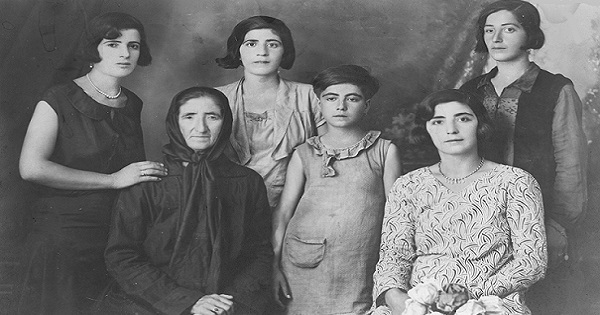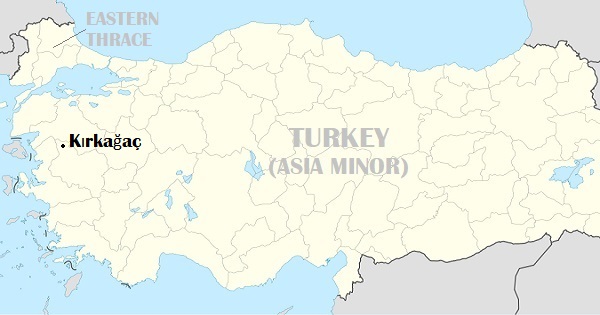
The Tsami family in Pireaus c. 1932.
The following testimony was submitted via our online questionnaire by a relative of the family, George Tsenes.
1. From which region of the Ottoman Empire were your ancestors from?:
My great-grandmother’s family was from a place called Kırkağaç. My grandfather’s family was from Smyrna.
2. How did their life change when the Neo-Turks and/or the Kemalists came to power? :
They could no longer live in safety in their homeland.
3. Were they deported during the genocide? If so, when, where to, and describe their experience:
No. My great-grandmother took what she could with her along with her children and fled to Piraeus, Greece. They arrived in Greece and were labelled refugees. She is pictured above with her daughters.
4. Were they held in a concentration camp or labor camp? If so, where was it located and describe the conditions :
No, they weren't held in concentration camps; she thought she was leaving for a short time thinking she would return to her home.
5. Did they lose family and friends? If so, how did they cope?:
Yes. The two young ladies to the left and right in the above photo lost their husbands when the Turks deployed their troops. Information passed down to us state that many of our relatives who lived there suffered greatly; many lost their lives by beheadings, hangings etc. The Turkish soldiers rode in with horses and indiscriminately killed people with their swords, setting fires to their houses. Women were raped, slashed with swords and as crazy as it sounds, they had their breasts cut off. My grandmother was about 2 years old when it happened. As they were boarding the ship to flee, the Turks took all their belongings. I believe they boarded an Italian ship. My great-grandmother was able to sneak some belongings on board for her children by stuffing them into pillow cases.
6. Did anyone within Turkey including Turks try to help them during the genocide? :
Yes. The local people tried to help prior to the troops arriving. I was told that the people of Kırkağaç lived together and were very happy for many many years. They had great relationships with other religions such as Muslims and the Hasidic Jews that made up the community.
7. How did they cope emotionally with their genocide experience? Did it affect the remainder of their life? :
As far as I could tell, my grandmother was able to cope throughout her life. My great-grandmother however always talked about going back home all the time. She and her parents were born there.
8. Did the denial of the genocide by the perpetrator (the successor state of Turkey) affect their ability to form closure?:
She never spoke of the genocide.
9. How did they feel about Turkey after the genocide? :
I know that my grandfather was angry but my grandmother never spoke about it.
10: Additional comments:
My great-grandmother was educated in England and her father was the Mayor of that town. She spoke Greek, French, English and one other language that she did not recall. Her daughter on the left Tasia was a designer of Persian rugs. What caused the suffering of millions of peace-loving people during that period was the hate, rhetoric and propaganda of various people and governments.




